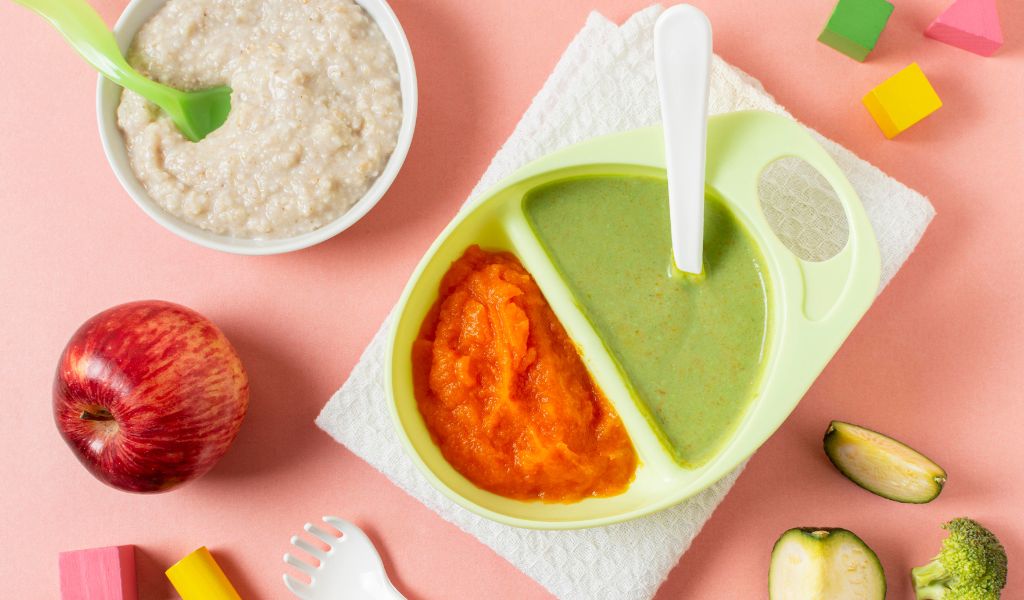Can I Start A Baby Food Trading Business In Dubai?
In a cosmopolitan metropolis used to speed, demand for premium baby food business Dubai is not only rising — it’s evolving.
The emirate’s vibrant population, high birth rates among expat communities, and health-oriented premium consumers all have come together to create one of the most promising regional baby food markets.
As parents continue to become more nutrition-aware, label-aware, and planet-aware, they will pay higher prices for high-end baby food brands.
This is great news for entrepreneurs but also a highly regulated category where compliance, consistency, and credibility are required.
From product registration and labeling standards to import permissions and health certifications, every step of the process must align with Dubai’s strict food safety framework. Yet for those with the right business strategy, operational partners, and regulatory foundation, the rewards are substantial.
Why Dubai Is A Growing Market For Baby Food?
Dubai’s consumer landscape is transforming rapidly. With its high concentration of young families, dual-income professionals, and tech-savvy parents who research every purchase, the baby food sector has expanded significantly in recent years.
According to market observers, baby food business Dubai industry benefits from three major trends:
1. Premiumization: Parents are increasingly seeking high-end, organic, or sustainably sourced baby foods that align with global wellness trends.
2. Ease and Ingenuity: Convenient purees, travel packets, and delivery subscriptions are what parents want.
3. Transparency and Accountability: Today’s consumers must be informed of the story behind each ingredient — from farm to baby spoon.
This changing attitude is seen in how the shopping space of Dubai has been overhauled. Carrefour, Spinneys, and Choithrams have stretched out their baby nutrition counters, while Noon and Amazon UAE provide specially selected baby food sections with international and boutique brands online.
Even pharmacies and baby specialty stores now carry premium products like hypoallergenic formula, organic fruit mix, and fortified cereals. Expansion in boutique baby stores is driving diversification — and a window of opportunity for specialist importers of baby foods.
And since Dubai is a global hub of logistics, opportunities do not stay local. The emirate is also a strategic re-export center, and because of this access, traders are able to export baby food products economically in the Middle East and GCC — Saudi Arabia, Oman, Kuwait, and Bahrain.
For those entrepreneurs who want to wed purpose and profit, this is one of the most sustainable and viable industries to invest in in 2025 and beyond.
What You Need To Get Started?
In order to start a baby food business Dubai trading business, it’s more than identifying the supplier. You require a platform that addresses all regulations, logistics, and commercial needs.
1. Business Licensing And Approvals
You will initially require a valid trade license for trading in foodstuffs or trading in baby food. Depending on the baby foods you intend to trade in — particularly if they are organic, dietary, or fortified — you might require further approval from:
- The Dubai Municipality Food Safety Department
- The UAE Ministry of Health and Prevention (MOHAP) (for particular formulations)
- The Dubai Customs Authority (for customs release)
Selection of the proper business sector also matters. Most traders opt for free zones like Dubai South Business Hub, with easy licensing and fast setup for food companies.
2. Product Registration And Documentation
All products are subjected to the Food Import and Re-export System (FIRS) prior to importing any baby food to the UAE. This is to confirm that all products meet UAE labeling and safety standards.
Registration generally involves:
- Ingredients breakdown and formula
- Shelf life and storage details
- Packaging and labeling information in English and Arabic
- Analysis and origin certificates
- Health certificates for the manufacturing country
Once approved, your product is now clear to be imported, marketed, and re-exported throughout the UAE.
3. Compliance For Storage, Hygiene, And Distribution
Infant food is a high-sensitivity product. That is to say that warehouses and distributors need to maintain extremely high standards of hygiene and temperature management.
If you are shipping perishables like purees, yogurt-based products, or organic baby food, cold chain logistics become the need of the hour. Dubai infrastructure allows this — with new temperature-controlled warehousing facilities, in the event of logistics hubs like Dubai South and JAFZA.
Additionally, you’ll need to conduct regular safety audits and adhere to local Hazard Analysis and Critical Control Point (HACCP) and ISO 22000 standards to ensure your supply chain meets international food safety benchmarks.
4. Supplier Relationships And Product Traceability
Parents want absolute confidence in what they feed their children. Building relationships with trusted, certified, and ethical suppliers is non-negotiable.
Ensure your suppliers can provide:
- Full transparency on sourcing and ingredient origins
- Certification of the form EU Organic, USDA Organic, or Halal compliance
- Quality assurance documents and sustainability certifications
Keeping clean traceability from production all the way through to point of sale will not just guard your reputation but make audits and regulatory inspections easy.
5. Scaling And Building Consumer Trust
In the business of baby foods, trust is your currency of choice. Parents don’t purchase a product — they purchase confidence. To grow sustainably, your brand needs to re-prove itself every time, in safety, quality, and transparency.
These are the methods by which successful Dubai merchants are gaining attention:
- Provide specialty lines of products: Provide organic, vegan, allergen-free, or fortified baby food to meet different nutritional needs.
- Transparency first: Employ transparent and honest labeling and provide full nutritional information.
- Enfranchise your audience: Develop store and digital content that tells parents about your ingredients, sourcing, and manufacturing.
- Enlist omnichannel distribution: Leverage physical stores, pharmacies, supermarkets, and digital channels to reach your audience seamlessly.
- Strategically partner: Partner with pediatric clinics, childcare specialists, and local influencers who are credible to your target audience.
- Maintain consistent quality control: Even if you’re an importer and not a manufacturer, uphold international testing and sampling standards to ensure product integrity.
By focusing on education, ethics, and experience, baby food traders can develop long-term brand loyalty among Dubai’s growing family demographic.
Why Dubai South Business Hub Is the Best Launchpad For Baby Food Traders?
Baby food business Dubai trade successfully demands more than business efficiency — compliance, trust, and positioning. And that is where the Dubai South Business Hub really shines.
Located strategically close to Al Maktoum International Airport and Jebel Ali Port, Dubai South provides unparalleled access to importers and re-exporters.
With its integrated ecosystem, business leaders are able to combine licensing, warehousing, and business operations under one umbrella, time and cost saving.
Why Dubai South is the best place for baby food traders:
- Simple Business Setup: Priority license facilities, limited bureaucracy, and prompt support to food trading enterprises.
- Regulatory Assistance: In-house personnel and partnerships to aid in obtaining approvals from Dubai Municipality and other regulatory bodies.
- World-Class Infrastructure: Temperature-controlled storage areas, logistics facilities, and supply chain solutions tailored for food safety.
- Networking Opportunities: Lively community of food, logistics, and retail experts — ideal for partnerships and collaborations.
- Scalability and Flexibility: Co-working to large warehouses, Dubai South allows your business to grow.
Whether importing high-end European baby food brands, creating private-label nutrition ranges, or breaking into regional export markets, Dubai South offers the platform to launch, operate, and scale efficiently.
Final Thoughts
The baby food business Dubai market shows a city that is quality-, health-, and innovation-driven. It’s a chance for business entrepreneurs to build a mission-driven business that’s serving a critical purpose — nourishing the future generation.
But success here is more than hoping. It is cooperation, faith, and placing yourself in the right setting. That is why departing from Dubai South Business Hub offers traders the advantage — the synergy of strategic positioning, regulatory guidance, and an environment that encourages development.
If you’re ready to take your first step into Dubai’s baby food trading sector, start where opportunity meets support — at Dubai South Business Hub. It’s more than a business address; it’s the foundation of your success.















